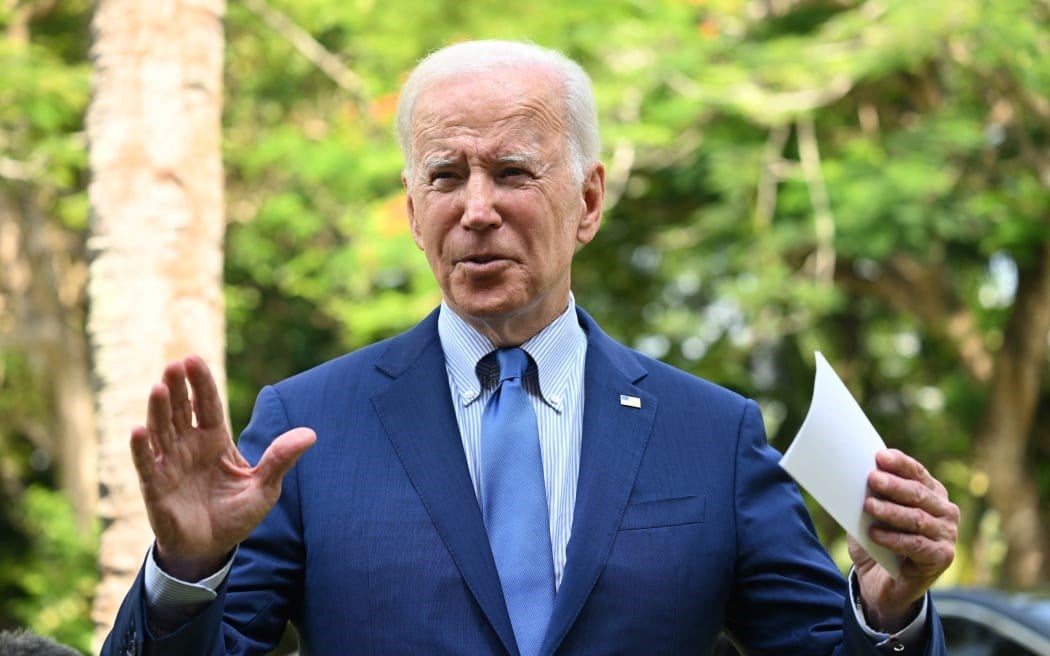Biden slams Zelensky's denial of missiles, 'That is not the evidence'
This cries out trouble between the arms-thirsty country and its supplier.
-

US President Joe Biden has addressed the situation in Poland following a meeting with G7 and European leaders on the sidelines of the G20 Summit in Bali. (SAUL LOEB)
In response to Ukrainian President Volodymyr Zelensky's denial that Ukrainian missiles were fired from Poland, US President Joe Biden said, "That is not the evidence," according to a statement released by the White House press pool on Thursday.
When aides abruptly woke Biden up in the middle of the night on the other side of the globe, they informed him that a missile had struck Poland and killed two people.
By 5:30 am local time in Bali, where the President was taking part in the G20 summit, Biden was on the phone with his Polish counterpart Andrzej Duda looking for clarification on where the missiles had actually originated.
This information was crucial because a Russian missile strike on a NATO ally could initiate a war or any other fatal consequences.
Read next: Ukraine unlikely to be able to push Russia out entirely: US general
Secretary of State Antony Blinken, who was traveling with Biden, had also been roused with a knock on the door by his body man around 4 am local time with news of the explosion, a US official said – news that most US officials only discovered from public reports and conversations with Polish officials.
Zelensky stated in his nightly address that "Russian missiles hit Poland" about an hour after the news of the incident first broke. He described it as "a very significant escalation" that necessitated a response. He was trying to initiate a war.
After making those comments, Sullivan immediately called Zelensky's office and pleaded with officials to be more circumspect in how they discussed the incident, according to sources familiar with the call.
Despite the Ukrainian President's requests to set up a call, Biden and Zelensky did not speak on Tuesday night, according to a source familiar with the situation.
Chaos at the Pentagon
When an aide interrupted their meeting on Tuesday in Washington to break the news of the explosion, Secretary of Defense Lloyd Austin, Deputy Defense Secretary Kathleen Hicks, and Chairman of the Joint Chiefs of Staff Mark Milley immediately called their Polish counterparts.
A press conference with Pentagon Spokesperson Brig. Gen. Pat Ryder was scheduled for a short while later, at around 2 pm.
However, the Pentagon had no evidence to support a Russian missile launch that struck NATO territory, and some Pentagon officials had just learned about a missile hitting Poland from the media.
Officials at the Pentagon had to decide whether to proceed despite having almost no information to share on what quickly rose to the top of the day's priorities.
Read next: Missiles that hit Poland 'likely caused' by Ukraine: NATO chief
Ultimately, one official told CNN the press shop went ahead with the press conference because they believed that calling off the event at the last minute would cause the exact kind of panic that they were trying to prevent.
Ryder took repeated inquiries about the missile for which he had no responses as he stood at the podium.
According to officials, Milley was directing his staff to line up phone calls while he was in his office in the Pentagon's outer ring. His Polish counterpart spoke first, then his Ukrainian counterpart. Milley spoke to other defense chiefs and to Gen. Chris Cavoli, chief of the European Command, who was also jumping from one call to the other.

 4 Min Read
4 Min Read









